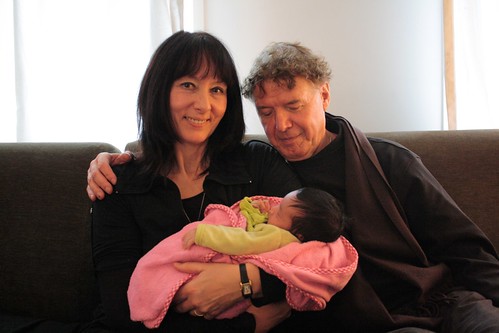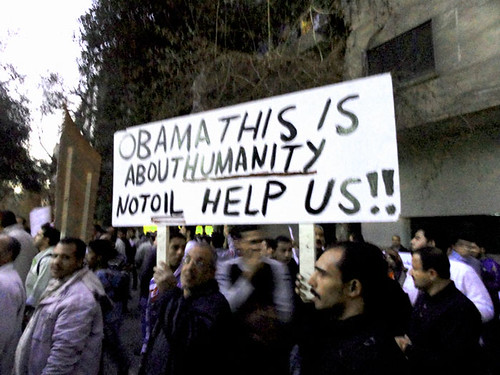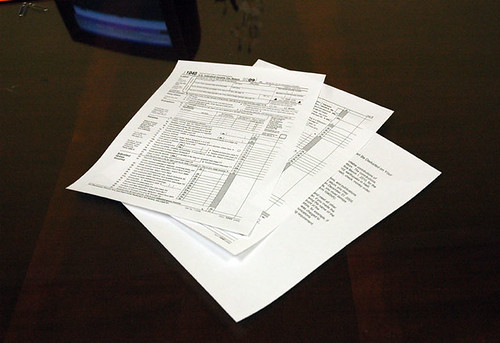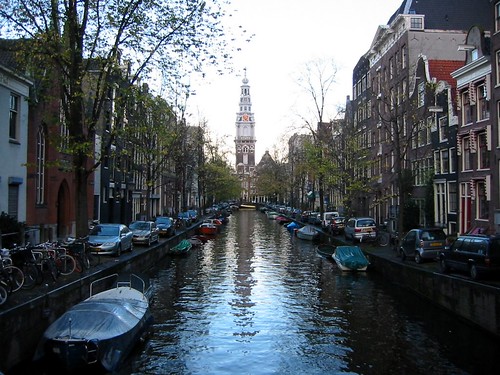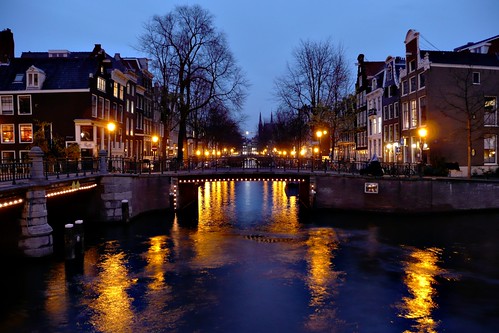Yesterday
I wrote about the European Blue Card. Since this is a "how to" blog, today's post will be a little off-topic, but I really want to take a closer look at the dynamics of European immigration. Specifically, why don't we have enough highly skilled workers?
Just to give an example,
this Dutch article refers to 3,800 Dutch job seeks in IT trying to fill over 15,000 vacancies (
Google translation to English). So here in the Netherlands, we have almost four jobs available for every person in IT. It's no wonder that
the Netherlands has created very favorable tax conditions to attract foreign workers.
So there are really two issues to examine here: why domestic workers aren't taking these jobs and why there are still obstacles for immigrants to fill the labor gap.
Domestic Workers
Europe is basically a bunch of capitalist countries with a bit of socialist policy applied in places to correct for market failure. For capitalist economies to work effectively, they need land, labor and capital. We can consider land a fixed quantity and capital is produced by labor, so it all comes down to the efficiency of your labor.
But what does labor need to be efficient? Labor needs three things:
- Health — to be able to perform the work
- Education — to be able to understand the work
- Mobile — to be able to get to the work
Even a cursory examination of
World Health Organization data makes it pretty clear that Europe is doing fairly well regarding healthy workers. Though spending more than they would like, they're spending far less than the US and getting better health outcomes.
Education is also widely available. The costs are rising in the UK, but much of Europe offers free or inexpensive higher education to their citizens. My wife, for example, has a Master's Degree in French Law for which she spent about €2,000 a year.
The US is still doing rather well in the percentage of citizens who are college graduates, but for the younger generation, has fallen to 12th place (they used to be first) and European countries are rising on that list.
¹
This still leaves the "mobility" factor. For this the US excels and I see no manner in which the EU can compete. With over 300 million residents speaking the same language, participating in the same culture and (largely) having the same laws, there are few barriers to people in the US simply up and moving to another state where work is.
Europe simply can't compete here. If you were born and raised in Calais, there's a good chance you only speak French.
Maybe you speak English or German as a second language. If you find out that your dream job just opened up in
Bratislava and your skills are a perfect fit, you probably still can't take the position because you don't speak Slovak. For workers in Europe, language and cultural barriers are the single biggest obstacles to European mobility. In fact, according to
Euractiv:
Workers’ Mobility is a key element in the EU'sagenda for a more competitive European economy. There are only approximately 1.5% of EU citizens who currently live and work in a member state other than their country of origin, a figure which has not changed for 30 years, despite the increase in facilities for settling abroad.
Ultimately if there is a shortage of workers for highly skilled jobs in Europe, how will this shortage be addressed? I believe the only viable long-term solution is to find ways to increase the supply of educated domestic workers for those positions, but this does not solve the immediate problem. That's where immigration comes in.
Migrant Workers
One common theme I've heard from Americans about US immigration is how "desirable" the US is since so many immigrants want to move there. USA Today (admittedly not a "quality" newspaper) reports that
between 2000 and 2005, around 7.9 million people emigrated to the US, with 3.7 million of those doing so illegally. Naturally, those are simply the people who
can get into the US. Many more would like to. So if so many people emigrate to the US, what does that mean?
Let's consider a Nigerian male, late 20s, who's a great software engineer. This tends to be a highly sought after skill and which one can often get a work permit for. So this Nigerian is looking at emigrating to either the EU or the USA. Which does he take?
Imagine there are no legal hurdles whatsoever. He can just "pick up and move". He's from the
Igbo tribe, so he speaks Igbo and English. Right off the bat, much of Europe becomes less attractive because they often require you to be competent in their local language (though many software houses are flexible as English is rapidly becoming
the international language). So clearly this young man is looking at the UK, the Netherlands (English widely spoken in major cities), Ireland, or the USA. If you speak English, there's clearly a bias towards the US. Actually, Canada, Australia and New Zealand might also want his skills, so there are plenty of non-European options, but we'll ignore those for now.
If you want to just look at salary options,
comparing the US to various European countries shows that you will earn more money in the US — often considerably more. Thus, particularly if you are looking at building a nest egg or sending money back home, the US becomes more attractive despite relatively poor labor conditions.
Once you start looking at immigration law, the US again starts looking more attractive. Not only is the US a huge, unified labor market presenting a single immigration policy,
US immigration law allows children to sponsor their parents and siblings to sponsor siblings, thus giving options to entry which many European countries do not offer. There is also a rather significant Igbo population in the US, making our hypothetical Nigerian more interested in the US due to cultural ties.
Conclusion
In 2010,
Newsweek reported that "The European Union has attracted 26 million migrants in the past two decades—a full 30 percent more than America's 20 million over the same span." However,
Euractiv puts this into perspective:
Figures presented by former Justice and Home Affairs Commissioner Frattini show that while 85% of unskilled labour migration goes to the EU and 5% to the US, only 5% of skilled labour lands in the EU – whereas the US alone absorb the lion’s share of engineers, technicians and ICT specialists, 55% of the total highly-skilled mobile workforce.
Even if the
five happiest countries in the world are in Europe and
the US, despite historic lows in crime rates, still has higher crime than Europe, there is simply no way that Europe is going to use these rather vague "feel good" indicators to fill their labor gap. The language and legal hurdles are simply too high of a barrier to entry and coupling that with lower wages makes emigrating to Europe even less attractive.
If the US can do something to redress their education issues and if they can also weather their current financial crisis, they're going to remain strongly competitive for a long time. China and India are also rapidly developing countries and are starting to compete for those skilled workers. What's worse, European discussions to allow short-term workers to gain skills and go home still won't be competitive versus the US as I've seen little in those discussions about making entry easier. Thus, not only will it be hard to enter, you know up front you have to leave. Why bother? In general Europe seems to know that it has a serious problem here, but a complete lack of agreement on how to address this problem is merely perpetuating it.
1. I am particularly concerned about the UK here as I lived in the country for years and am quite fond of it, but as their university costs are rising, they are finding their graduation rates dropping dramatically. It's not much of a stretch to see a link, but with their increasingly anti-Europe and anti-immigration leanings, they're going to have a hard time filling their skills gap and remaining competitive.
